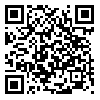مجله رویش روانشناسی از دادن گواهیهای کاغذی معذور است. لطفا تقاضا نکنید. همه گواهی ها در صفحه شخصی کاربران موجود است.
year 13, Issue 7 (atumn 2024 2024)
Rooyesh 2024, 13(7): 171-180 |
Back to browse issues page
Ethics code: IR.IAU.ARDABIL.REC.1402.062
Download citation:
BibTeX | RIS | EndNote | Medlars | ProCite | Reference Manager | RefWorks
Send citation to:



BibTeX | RIS | EndNote | Medlars | ProCite | Reference Manager | RefWorks
Send citation to:
Maryam Shahab M, Taklavi S, Pourmohseni Klouri F. (2024). The effectiveness of compassion focused therapy on self-blame, guilt, and impulsive behaviors of adolescents with adverse childhood experiences. Rooyesh. 13(7), 171-180.
URL: http://frooyesh.ir/article-1-5252-en.html
URL: http://frooyesh.ir/article-1-5252-en.html
1- Ph.D. student Psychology, Department of Psychology, Ardabil Branch, Islamic Azad University, Ardabil, Iran.
2- Assistant Professor, Department of Psychology, Ardabil Branch, Islamic Azad University, Ardabil, Iran. ,staklavi@gmail.com
3- Associate Professor, Department of Psychology, Payam Noor University, Tehran, Iran.
2- Assistant Professor, Department of Psychology, Ardabil Branch, Islamic Azad University, Ardabil, Iran. ,
3- Associate Professor, Department of Psychology, Payam Noor University, Tehran, Iran.
Abstract: (1920 Views)
The purpose of this study was to determine the effectiveness of compassion-focused therapy on self-blame. Guilt, and impulsive behaviors of adolescents with adverse childhood experiences. The research method was semi-experimental with a pre-tested and post-tested design control group. The statistical population included all the Islamic Azad University of Ardabil branch in the academic year of 2022-2023, and 48 people were selected by the available sampling method and randomly replaced in two experimental (n=23) and control (n=25) groups. The experimental group underwent eight 75-minute session-based therapy. Data collection tools included the Adverse Childhood Experiences questionnaire (ACE-Q) (Bellis et al, 2014), The Barat impulsivity questionnaire(BIS-11) (Patton et al, 1995), The Gilbert self-blame scale (SBS) (Gilbert et al, 2004), and Self-conscious emotions scale of Shame and guilt (GASP) (Cohen et al, 2011). Data analysis was done by multivariate analysis of variance (MANCOVA). The findings showed that by controlling the pre-test effect, there was a significant difference at the 0.01 level between the post-test mean of self-blame, guilt, and impulsive behaviors in the two experimental and control groups. These results state that compassion-focused therapy is a suitable psychotherapy method to reduce self-blame, guilt, and impulsive behaviors of adolescents with adverse childhood experiences.
Keywords: Guilt, Adverse Childhood Experiences, Self-Blame, Impulsive Behaviors, Compassion Focused Therapy.
Type of Article: Research |
Subject:
Clinical Psychology
Received: 2024/03/27 | Accepted: 2024/08/13 | ePublished: 2024/10/1
Received: 2024/03/27 | Accepted: 2024/08/13 | ePublished: 2024/10/1
Send email to the article author
| Rights and permissions | |
 |
This work is licensed under a Creative Commons Attribution-NonCommercial 4.0 International License. |





